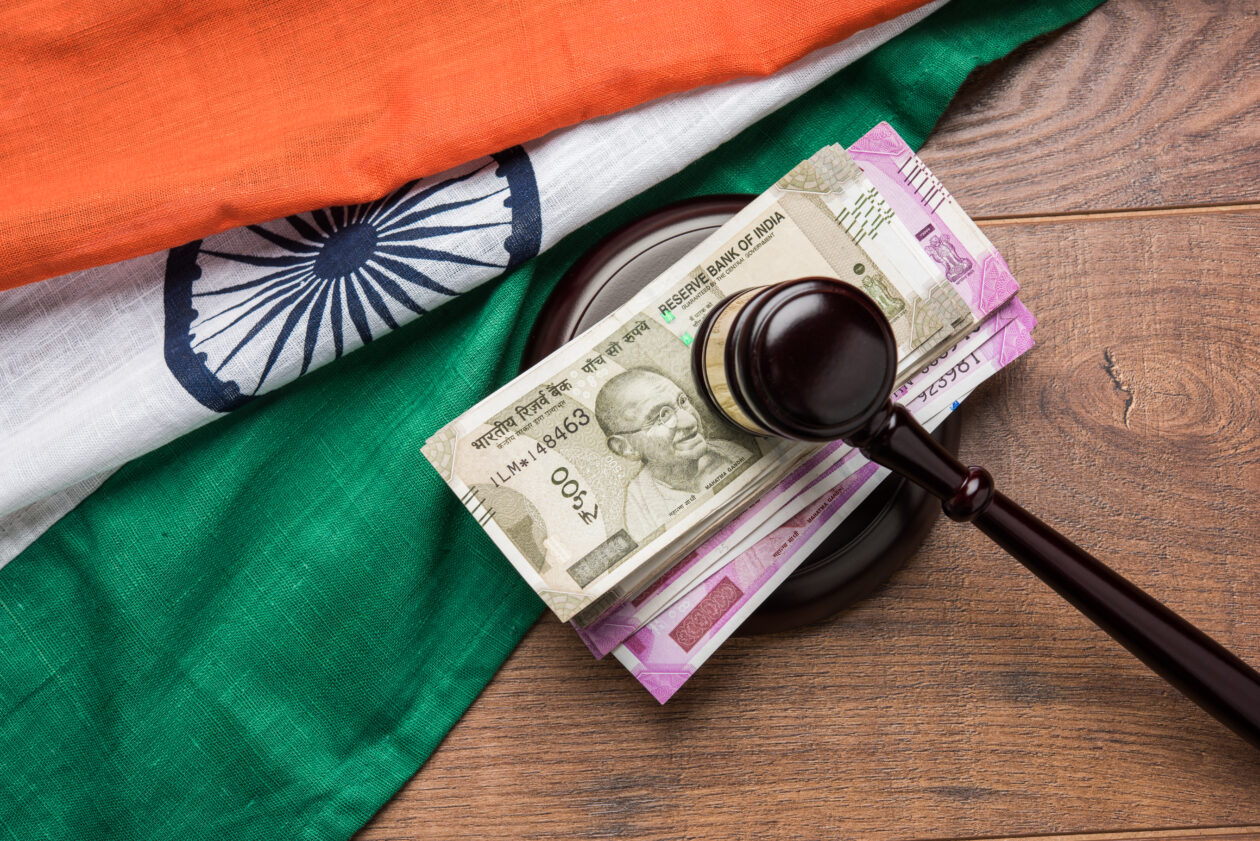Trading cryptocurrencies in India involves dealing with a complicated layer of taxes, but while that’s a headache for investors one company has found a potentially lucrative opportunity in the confusion.
India imposes a 30% flat tax on all crypto income and a 1% tax deducted at source, or TDS, on all transactions above 10,000 Indian rupees (US$121) with no provision to offset losses with gains made elsewhere.
Homegrown start-up TaxCryp Technologies, said it has developed technology to help crypto investors with tax compliance. TaxCryp had a beta launch of the technology in August and plans to introduce new features soon. The company also plans to introduce services for decentralized finance (DeFi).
“There are 20 to 25 million crypto investors in India and most of these guys are well above 100 or 200 transactions per year, and they need tax compliance,” Indy Sarker, one of the founders, told Forkast in an interview.
The startup has 30 employees, along with two other founders Anmol Chawla, and Vaibhav Gupta, and aims to double headcount in one year, Sarker said, as it signs up customers and introduces new products and services.
“There are numerous online stock trading platforms that are super successful in this country. So there is a business model here to be built without necessarily aspiring for a dominant 90% market share. Even with reasonable market share, you have got a very profitable business opportunity here to be reaped in India,” Sarker said.
A report last year said India’s crypto industry has the potential to add US$184 billion of economic value to the country by 2030 by way of investment and lower costs. The report added that crypto companies in India then employed 50,000 people and forecast that could rise to more than 800,000 by the end of the decade.
Regulations (again)
Sarker said there will be more people getting into crypto once there is better transparency and regulatory clarity around the assets. TaxCryp plans to educate the crypto investor in India on tax obligations, he added.
“There’s a lot of misconceptions around what is a tax incident and what is a deemed tax liability. So we are working through many of them,” he said.
India’s finance minister Nirmala Sitharaman introduced a flat 30% tax on all crypto income from April 1, while a 1% TDS was imposed on all transactions above 10,000 Indian Rupees (US$121) from July 1.
As a result, trading volumes on crypto exchanges plunged as much as 70%, eating into revenues on the platforms. India also does not allow crypto traders to offset losses with gains made elsewhere, and has not clarified the legal status of the asset.
India taxes citizens on a proportional basis with direct tax on income ranging between 5% and 30%. However, only 6.7 million people filed income tax declarations this year through July 31, according to a Twitter post by the department. India has a population of more than 1.4 billion people.

Despite the taxing environment, India had as many as 115 million crypto investors, or 15% of the Indian population aged 18 to 60 years as of June, according to a report by Seychelles-based cryptocurrency exchange Kucoin.
The report said these investors had either held or traded in crypto in the past six months, despite the high taxes.
Tax tech
India’s crypto tax confusion is compounded because it’s not clear how the government views digital assets, whether as a security or a commodity or a currency.
While most tax firms in India are calculating crypto taxes manually, TaxCryp said it is betting on its technology for accuracy and speed of tax compliance to stay ahead of competition.
Almost 99 percent of crypto investors in India are individuals, while institutional appetite remains low, Sarker said.
However, as regulations emerge, leading to greater transparency and better risk management, Sarker said he expects the next wave of crypto investing in India to come from institutions.
“It’s amazing how many people from tier two, tier three cities are getting crypto exposure today,” Sarker said, referring to demographic data on retail crypto investors in India.
“We need rules and regulations to protect the investors, where certain coins are put through scrutiny before they are made available to investors. So lots of regulatory considerations to create stability in the industry over the next couple of years,” Sarker said.

Many tax consultants are charging between 10,000 and 20,000 Indian Rupees (US$121 to US$242) for providing crypto tax calculations, while TaxCryp claims to offer the same service for 750 Indian Rupees (US$9).
“That’s what technology allows us to do and achieve tax compliance at a fraction of those costs,” Sarker said. Moreover, most other tax consultants require bank statements to calculate taxes – a compromise on users’ privacy – while TaxCryp requires users to only link their crypto wallets. The whole process takes a few minutes, Sarker claimed.
TaxCryp is handling India crypto investors only at present, but is looking at potential opportunities in the ASEAN region as well as the Middle East and Africa, which, according to Sarker, offer opportunities.
“We certainly think from an aggressive timeline standpoint, 2023 is going to be a year of a lot of action. Not only are we looking to drive subscriber growth in India during that financial year, but we’re also looking to spread our wings to see what are the opportunities, both regionally and otherwise,” he said.
“Our priority is to get India right. There’s enough of an opportunity here.”
